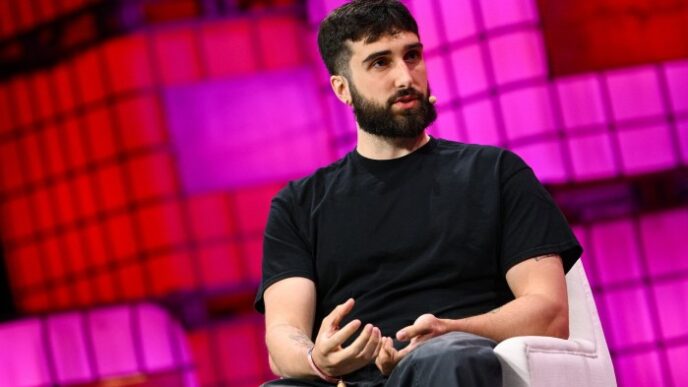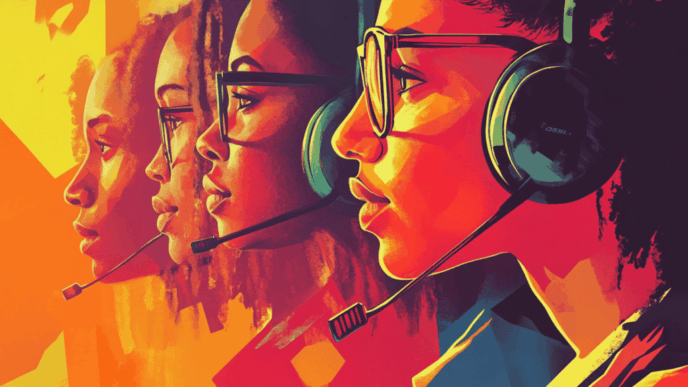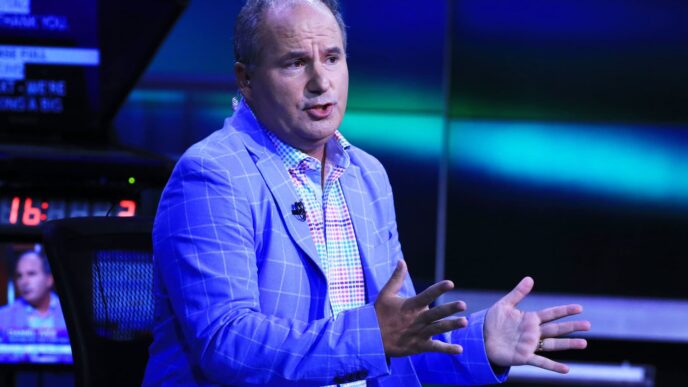Streaming services are under fire as fraudsters flood platforms like Spotify and Apple Music with AI-generated tracks. These fake songs are being used to siphon off royalties through dubious listening tactics, severely affecting indie artists.
Deezer reports a staggering 20,000 fully AI-created tracks are uploaded daily, almost doubling from earlier this year. Fraudsters exploit low production costs, creating songs quickly and using bots or even humans to listen repeatedly for ad revenue.
Spotify claims it actively fines violators, while Apple Music insists that "less than 1% of all streams are manipulated." However, in a $20.4 billion industry, that could mean hundreds of millions disappearing into the pockets of criminals.
The music distribution company Fuga states that the rise of streaming fraud began around 2021. CEO Darren Owen reveals that detecting this manipulation now comprises 50% of their operations. Countries like India and Vietnam are hotspots for click-farm activities, signaling organized crime involvement.
“You’re not going to listen to the same song at the same time across multiple devices,” Owen added, highlighting the patterns they track.
The situation worsens for genuine artists. A sudden spike in streams can lead to unjust takedowns. For instance, Darin Hemmings, a musician and manager at Motive Unknown, faced this after his track surged from a few plays to over a thousand.
“It’s very judge, jury, executioner,” Hemmings remarked.
Northern Irish rock band Final Thirteen endured similar fates, suspecting a recent spike was due to a Radio 1 play. Their drummer, Doobes, stated, “It’s really hard for any artist to prove that they didn’t [manipulate streams].”
Indie artist Adam J Morgan had a track’s thousands of streams wiped out, citing no wrongdoing. “I hadn’t done anything wrong,” he stated, emphasizing the frustrations of dealing with overly strict distributors.
Matthew Whiteside, an artistic director, revealed that he faced multiple album removals due to artificial streaming claims. “If we get 1,000 streams a month on an album, I’d be very happy,” he shared.
Despite efforts from platforms like Deezer, which claims to leverage fraud detection algorithms, many artists feel powerless against system-induced removals. Pop singer Levina experienced a complete blackout due to a name clash. She lamented, "It’s almost impossible to [appeal] through them.”
"You fill out a form but it leaves you quite powerless,” Levina added.
The industry acknowledges that while containment is necessary, the overall structure often penalizes small artists the most. This ongoing battle may push indie musicians to abandon mainstream streaming services for platforms like Bandcamp.
Darren Owen warns that the latest tactics involve boosting multiple tracks slightly, hoping to evade detection. This evolution could trigger a two-tier streaming economy.
For many in the indie music scene, the risks may outweigh the rewards of staying on current streaming platforms.














